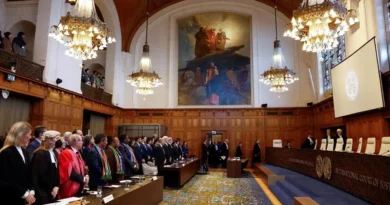How 'majoritarian democracy' overwhelms democracy
EUGENIO GARCIA GASCON
It is still too soon to know if the new pejorative concept of 'majority democracy' that some media are talking about when referring to the disturbing process that is taking place in Israel will be consolidated. A journalist from Channel 12 recently used it by changing the tone of his voice, instilling a certain sarcasm with negative connotations towards an Executive that is based on comfortable popular support. The government commands a solid majority in parliament but adopts measures that ignore the opposition and ruthlessly crush some basic principles of democracy with a ruthless roller.
Israel is not a unique case. Hungary, for example, a NATO and EU member country, is another. But the phenomenon is occurring in out-of-the-way places that consider themselves fully democratic, but where the new “majority democracy” is beginning to wield its power without restraint. Hungary, where Viktor Orbán has overwhelmed the opposition, destroying the critical media, is the most outstanding model of the brand new Western systems that are being introduced into the illiberal world that no longer only includes underdeveloped or developing countries such as India or Pakistan.
Countries with an exquisite democratic pedigree are succumbing to the push of the new toy of “majority democracy”. We are not just talking about third-rate states. The United States itself carried out an incipient experiment in this field during the mandate of Donald Trump, and there is no guarantee that they will not repeat it in the short or medium term. The case of Israel is a little different insofar as it is subjected to strong nationalist shocks and religionists that aggravate the situation, given that nationalism and religionism They undermine democracy ex officio from the very starting point.
The responses of these governments to the criticisms they elicit are often similar. The leaders involved in “majority democracy” remember that they have been freely chosen by the majority, and they argue that this is precisely what democracy is and that the support of the votes gives them the freedom to dictate their policies. From one election to another, the number of voters who support them increases, so that the new system is in good health and presents itself as a trend for the future that is consolidating more and more places and taking strong root where it already works.
In the West, “majoritarian democracy” is defended mainly by right-wing and extreme right-wing parties that are gradually gaining greater representation in parliament, although the phenomenon does not necessarily have to be right-wing. Many people have lost confidence in the traditional democratic system, mired in a deep crisis in the center of the arc, while the extremes are constantly reinforced. Plato said that democracy leads to tyranny and gives the impression that we are experiencing a transition in that direction.
On other occasions in history, tyrants have violently put an end to democracy, supported by a more or less considerable part of the people. But now the common people support the tyrants from the ballot box. The people seem tired of traditional democracy and lean towards tyranny. The fatigue may come from living in extraordinarily complex societies that are not easy to manage, so that people prefer the simplifications that tyranny promises over the increasing complexity of democracy. The result is booming “majority democracies”—a euphemism for tyranny.
The policies of Orbán or Benjamin Netanyahu often coincide with those of tyranny, but unlike historical tyrants, Orbán and Netanyahu insist that they have obtained clear support at the polls in fair elections. The people have chosen them consistently when they had in their hands the possibility of defeating them by means of the ballots. This is the foundation of the “majority democracy” to which the Israeli journalist sarcastically refers.
We live in times of change. Traditional democracy cannot be sustained forever, perhaps not for much longer. Israel and Hungary may simply be the vanguards that set the course towards which the West and the rest of the world are advancing: traditional democracy fades and little by little degenerates while tyranny grows fatter.
In the cases of Israel and Hungary, some resistance is observed in the streets, but the noise comes from a clear minority. In any case, it will be interesting to see how the tensions are resolved in those two countries that constitute a true laboratory of modern tyranny.
Eugenio Garcia Gascon has been a correspondent in Jerusalem for 29 years. He is a Cirilo Rodríguez journalism award winner.













